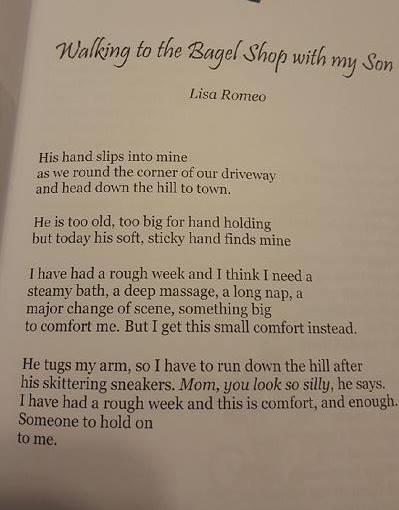I'm not suggesting they embark on a serious study of poetry forms (though if that's interesting to any of them, why not?). What I'm doing is pushing them outside of their writer comfort zones. Reading a form they don't write in, to discover how those writers operate, and why. Giving them a new lens through which to consider that cranky essay, that recalcitrant narrative, that stubborn slice of memoir. To look from a new angle, with a different and strict economy of words, at what a piece of prose is struggling to be about. And to listen to what might happen on the page when the prose becomes a poem.
Every time I do this, in any class or workshop, the response is mixed. What I tell them all is how much I've learned about writing from the other genres. How pleased I was, during my own MFA program, to discover everything that poetry, and poets, and poems, and the blurry line between prose poetry and creative nonfiction, had to teach me about getting at the heart of what I was trying to write.
With the act of writing a poem, I think prose writers are well reminded of the value and possibility of each individual word. Of the need to think about each word on its own. Each word in connection to the words that come before and after. And in relation to the places where there are no words. These are nuances of writing that sometimes get lost in what can be an avalanche of words in prose drafts. Poetry demands the prose writer in me to stop and consider: this word? that one? or another one entirely? or no word? a space here? end here? or there? why? what's between the words, where there are no words?
I often try a problem child piece of prose as a poem, which shows me something about what I'm trying to say. Usually, I then go back to prose, wiser. But not always. About eight years ago, I did a crappy first draft of what I assumed would be a narrative essay, about a day I took a walk with one of my kids. When it wasn't working out, I tried capturing just one moment of the experience as a poem. That felt better. Then I put it away for a long time. I looked at it again last summer, as my younger son, who appears in this poem as a 10 year-old, was packing for college. I realized it was, and is, and is only, a poem. It appears in a new mixed-genre anthology, In Celebration of Mothers (edited by Trisha Faye), published this month.





